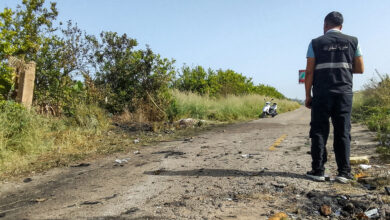You cannot follow what is currently happening in Kuwait without comparing it to what is happening here in Egypt. The democratic experiment in Kuwait, which has made considerable headway despite its relatively short history, stands in contrast to our own democratic experiment, which began with the establishment of the Shura Council, the first parliament in the Arab World. The lesson here is that what matters is the type of experiment conducted, not its longevity!
Although the issue has been around for some time, it reached its peak the day before yesterday when the Kuwaiti Emir Sabah el-Ahmad conducted an interview with a German newspaper in which he vehemently criticized the Kuwaiti parliament. He then proceeded to criticize the Kuwaiti constitution, saying that the constitution needed to be modernized. He indicated that the constitution in its current form created a mixed regime, which was neither a pure parliamentary monarchy nor completely led by an executive. The Emir concluded that the natural result of such a constitutional setup was the development of a bitter conflict between the government and the parliament, which each faction trying to outmaneuver the other.
This conflict has led to the dissolution of parliament three times over the last four years, in addition to the resignation of the prime minister five times during that same period.
The paradox here is that in Kuwait, it is the ruler of the country himself who is no longer satisfied with his country’s constitution. Not only that, he also criticizes the constitution publically and demands that it be replaced with a modern constitution that puts Kuwait squarely in the present and not in the past!
However, the problem in Kuwait, seemingly intractable at the current juncture, is that Prime Minister Nasser Sabah is a cousin of the Emir. Therefore, every time parliament tries to question the prime minister, Nasser Sabah refuses and rushes to disband parliament and hold new elections. He then takes charge of the government again, starting the whole cycle anew.
Some call for the royal family in Kuwait to be like the royal family in Egypt before the July Revolution, when no one in the family assumed an executive position in the government. Such an arrangement would avoid the embarrassing situations the emir finds himself in every time a family member is the subject of a public inquiry, which then leads to the dissolution of parliament.
It is clear that forbidding members of the royal family from taking executive positions in the government is not an option, and no one knows if the emir’s criticism of the constitution will hasten its amendment and allow the country to avoid its recurrent political pitfalls. Nevertheless, what we do know is that his criticism means that he wants a government that does what a government is supposed to do; in addition to a parliament that performs its duties in creating legislation for the people and serving as a government watchdog.
However, in our country we talk about the opposite. Every time the president or one of the leaders of the ruling party speaks about the constitution, it is to highlight the people’s satisfaction with it. This is in spite of all the obvious flaws in our constitution, many of them introduced into the document in the beginning of the 1960s. This is particularly true for worker and peasant issues, which often make us the laughing stock of the world.
Therefore, if the problem in Kuwait is that the parliament is overly zealous in its scrutiny of the government, we suffer from the exact opposite, for our parliament is negligent in its supervisory duties!
This problem in Egypt has reached the point where our parliament boasts of its own negligence without a hint of shame. At no time was this made clearer than when parliament dropped 11 inquiries into government actions, inquiries that questioned our government about its responsibility for the pollution that we inhale, drink and eat. What did the parliament do? It declared the government innocent and condemned the people!
Translated from the Arabic Edition.
Opinion




